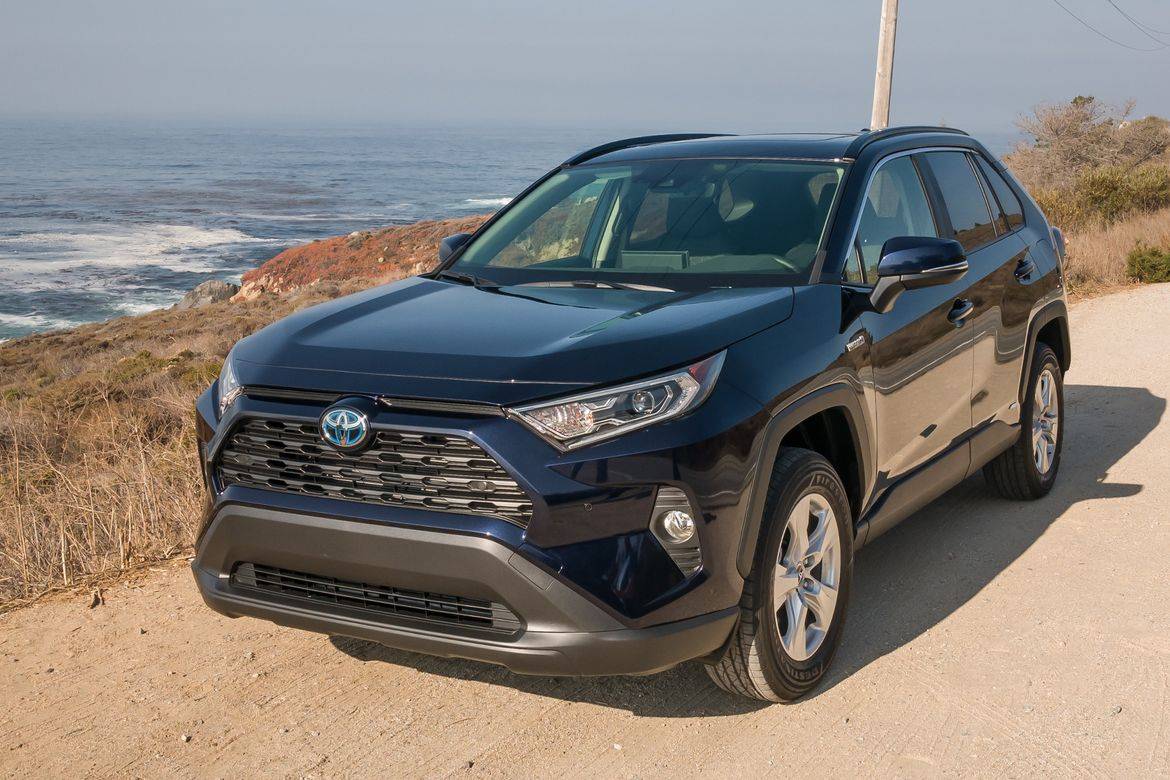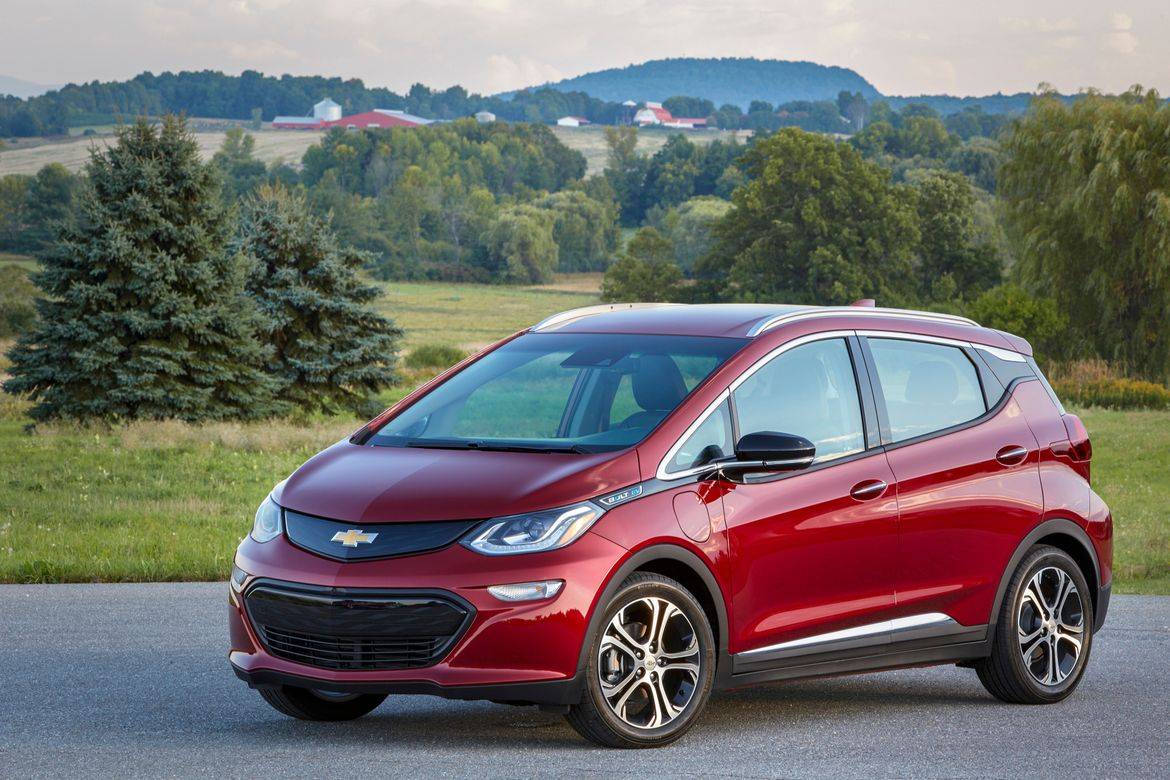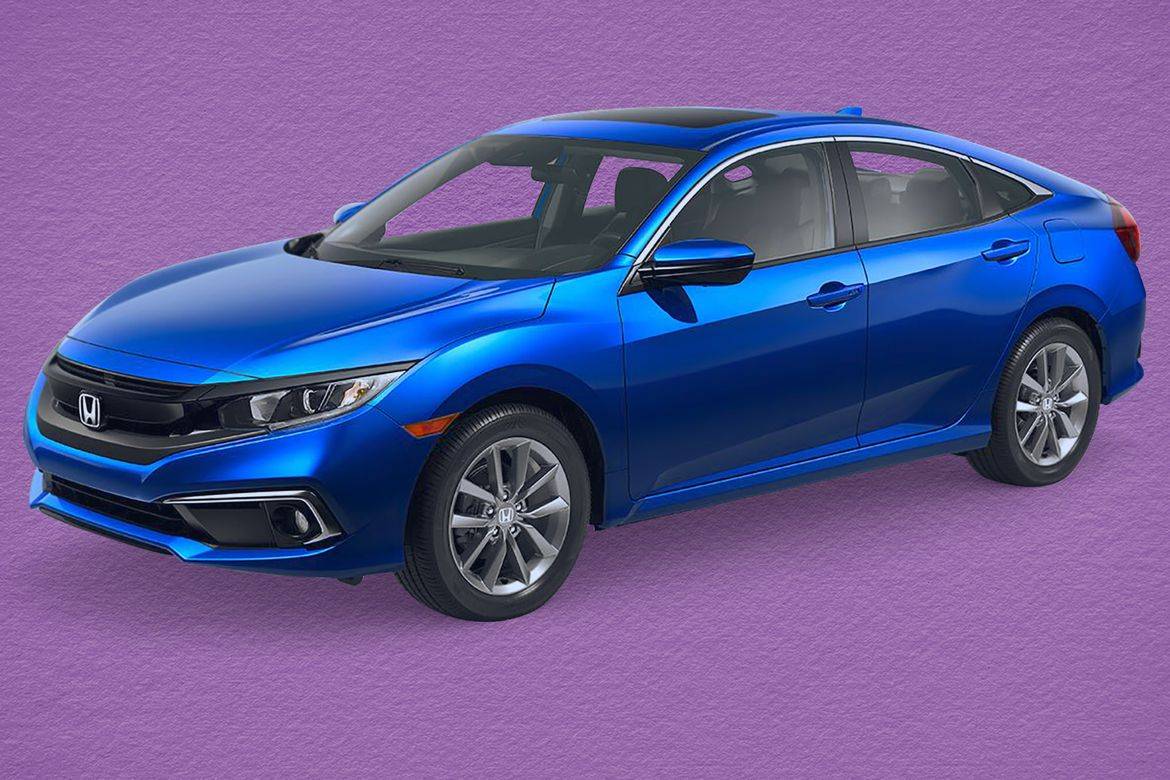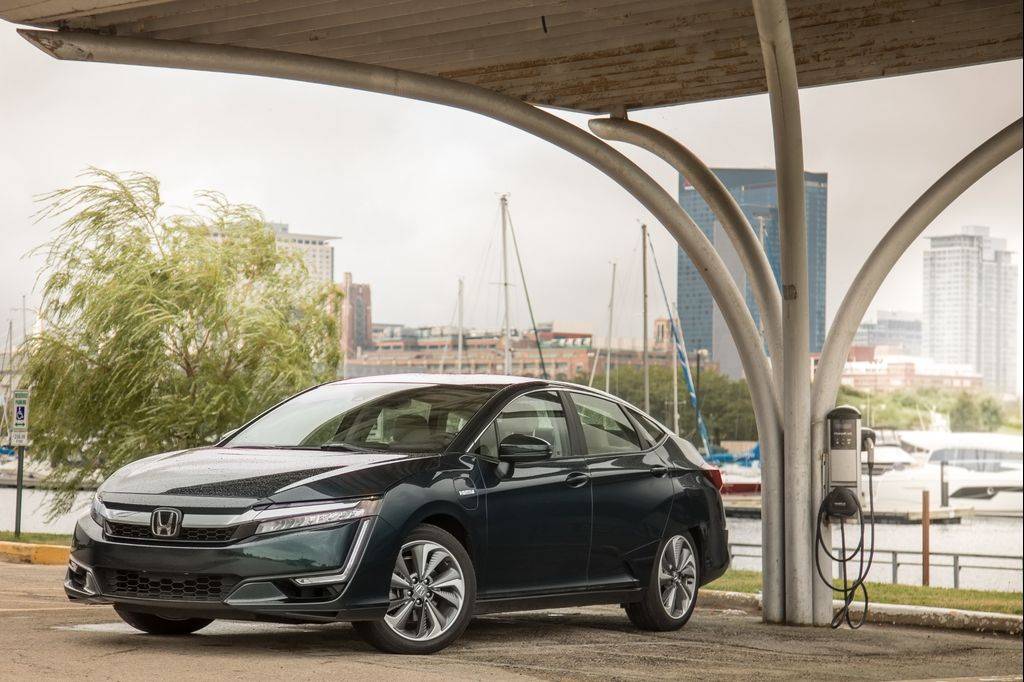2019 Eco-Friendly Car of the Year

For the 2019 RAV4 redesign, Toyota improved many key areas, including roominess, cabin quality, the multimedia system and the list of standard safety systems, but the standout is the hybrid model, which delivers the best blend of utility, economy and a comfortable driving experience.
The all-wheel-drive-only hybrid version offers more pep off the line and impressive fuel economy. Are there more efficient hybrids? Certainly, among the smallest and most miserly cars, but the RAV4 Hybrid represents a rare green alternative in the heart of U.S. consumer demand, compact SUVs, providing the fuel economy of a compact car. Toyota estimates 41/37/39 mpg city/highway/combined, up significantly from the outgoing hybrid's rating and substantially better than the competing Nissan Rogue Hybrid's 33 mpg combined with AWD.
RAV4 Hybrid drivers no longer have to sacrifice cargo room for fuel efficiency. The hybrid's cargo space increases compared with the old hybrid and now matches the non-hybrid's space thanks to a skinnier battery pack. In terms of value, the hybrid is accessible: The powertrain is available across the lineup for an additional $800 on top of the price of an all-wheel-drive RAV4.

Despite the ongoing phaseout of consumer tax credits for GM's plug-in cars, the 2019 Chevrolet Bolt EV remains a standout choice for those who want long range and relative affordability. Proliferating competition has diminished the Bolt EV's competitive appeal since it went on sale in late 2017, but the all-electric hatchback remains one of the few EVs with more than 200 miles of electric range that you can buy nationwide without breaking the bank. For all the hype, such realities have eluded many other plug-in cars.
The Bolt EV costs anywhere from the high $30,000s to the mid-$40,000s, depending on your appetite for options, and all versions carry an EPA-rated 238 miles of range. Those numbers built a case that would take a stinker of a car otherwise to ruin, but the Bolt EV's blunders are few. It's quite good, in fact: Acceleration is brisk from a stop and handling feels secure. The cabin is roomier than the shrink-wrapped exterior suggests, and the dashboard's generous 10.2-inch touchscreen has standard Apple CarPlay and Android Auto. The regenerative brakes boast more natural pedal feel than many of their ilk, and the battery takes a reasonable 9.5 hours to charge at 240 volts. Should you want faster public charging, DC fast-charge compatibility is available.
Put it all together, and such strengths prompted Cars.com to crown the Bolt EV our Eco-Friendly Car of the Year in 2018. One model year later, it remains a strong choice.

Battery-electric vehicles — especially those from automaker Tesla — continue to grab headlines, but if you're not ready to make the jump to a car you plug in rather than one you fill up, you can still go green — or at least greener, without buying a hybrid. Witness the 2019 Honda Civic EX sedan, a fuel-efficient, gas-powered compact car. The Civic sedan has a standard 2.0-liter four-cylinder engine, but the mid-level EX trim gets a turbocharged 1.5-liter four-cylinder that improves performance and fuel efficiency.
The turbo 1.5-liter engine works with a continuously variable automatic transmission, and the pair return an EPA-estimated 32/42/36 mpg city/highway/combined. If you're thinking that 42 mpg on the highway sounds great but are concerned that the Civic sedan might not be big enough for your needs, think again: The Civic is no longer the small, basic car of yore but rather a small yet roomy sedan that can comfortably seat four adults and have space for their luggage in its 15.1-cubic-foot trunk. Besides being practical and fuel-efficient, the Civic sedan is also enjoyable to drive, with engaging handling — even in a mainstream trim like the EX.
Cars like the Civic have fallen out of favor recently as many consumers opt instead for SUVs, but lower interest in small cars means there are deals to be had. Saving money at the dealer and at the gas pump for years to come? That's a beautiful thing.

We'd say plug-in hybrids get a bad rap, but we're not sure U.S. consumers even understand what they are or how they work. Detractors deride backup engines as training wheels, but we were early fans of the genre that bridges the gap between electric and gas cars as early owners of a 2011 Chevrolet Volt, another well-executed example that's being discontinued too soon. Fortunately, the plug-in hybrid version of the Clarity (one of three) provides almost as much EPA-estimated electric range as the Volt, 47 miles, and the same 42 mpg combined once the gas engine starts. It's also a larger car with a comparable price and — currently, at least — a $7,500 federal tax credit (Chevrolet's tax credits have begun to phase out). Unlike battery-only cars, 120-volt household charging is a viable option. You can get longer electric ranges from full EVs and higher mpg from regular hybrids, but for the right owner, the Clarity provides lower cost-per-mile commuting with no tailpipe emissions in the same car that can also go long distances when needed. Perhaps most important, it makes far fewer sacrifices than some plug-in hybrids, whose short EV ranges may have tarred the whole category.
We get it: PHEVs haven't set hearts ablaze, even those of environmentalists, when compared with regular hybrids and pure battery-electrics. But we're not ready to give up on them because of how effective the few good ones can be — and because it's likely more bad ones will muddy consumer perception as automakers attempt to comply with well-meaning but flawed environmental mandates. The Clarity Plug-In Hybrid is not one of those. It's not a perfect car, as the driving experience is occasionally awkward like a hybrid's, but it's comfortable and can be a household's only vehicle. The only real trade-off is modest overall range between fill-ups due to a modestly sized gas tank.
With the industry and some regulators pushing plug-in vehicles hard to largely disinterested consumers lulled by consistently low gas prices, the versatility of a good PHEV has merit. Ask owners of EVs with more than 200 miles of range, and many admit they've proved to be more than they need. Unfortunately, that's an expensive lesson. A well-executed PHEV like the Clarity will teach you how much range you really need without the risk of being stranded — or the cost of overkill. You know who uses training wheels? Almost everybody. If you learned to ride without them, good for you; your nose still doesn't look right, BTW.
